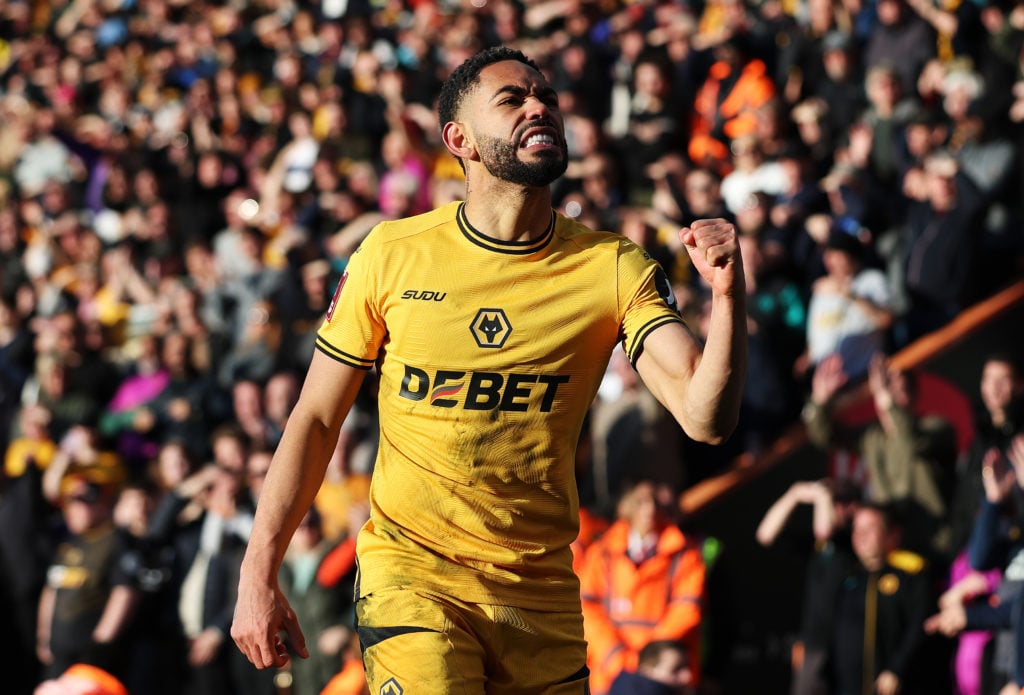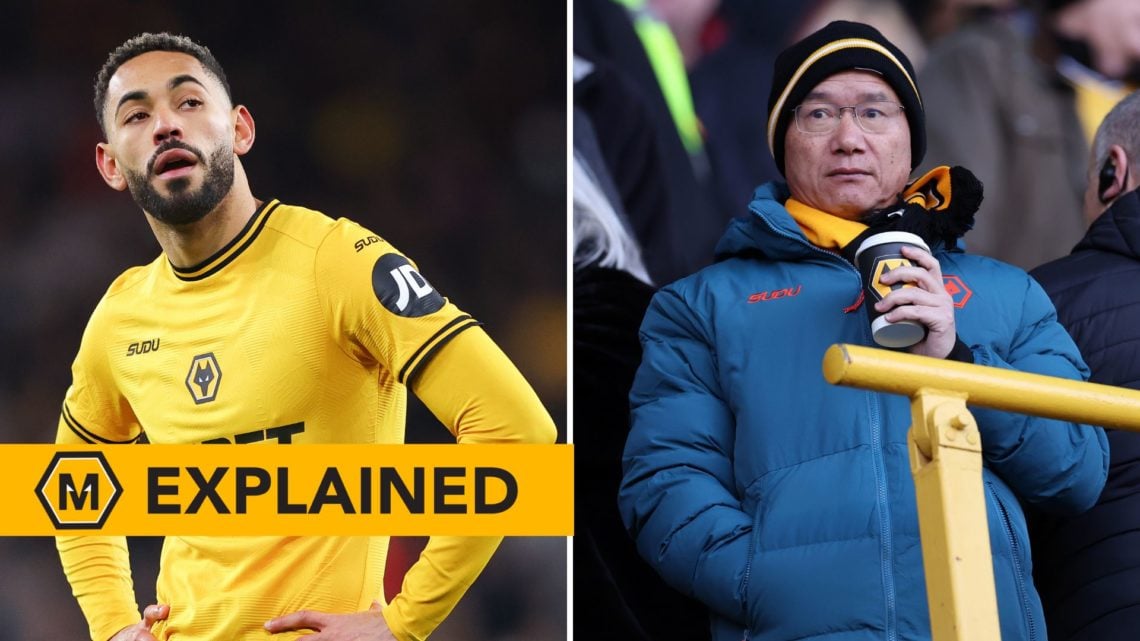Details of Matheus Cunha’s release clause caused worry for some but, where exactly do Wolves stand financially in the situation?
The summer transfer window is fast approaching and is likely to represent the end of Cunha’s journey at Wolves.
During the January transfer window, contract talks were resolved with the forward, who committed his future to the Old Gold with a new deal.
Unfortunately, the agreement doesn’t mean a longer stay in the West Midlands for the 25-year-old, as a £62.5m release clause was written into Cunha’s contract.
Some believe that the Brazil international’s release clause value is far from his true worth, with matters not made easier to comprehend as details of the agreement emerged.
Journalist Liam Keen relayed that Cunha’s release clause would not have to be paid in full upfront, which differs from the usual case with exit agreements.
Such would be a blow for Wolves, who would miss out on an instant cash injection from the sale of their star player.

Finance expert analyses Matheus Cunha’s contract and release clause
Selling Cunha for more than his release clause could be an option for Wolves, as interested clubs are more likely to offer more in order to split the payment over time.
While Wolves would be helping other clubs with PSR by offloading Cunha on an instalment basis, what would it mean for the Old Gold’s finances?
Molineux News spoke to TBR’s Head of Football Finance and Governance Content Adam Williams for answers regarding Cunha’s release clause.
Asking whether Cunha’s exit not being paid upfront would impact Wolves’ PSR status, Williams explained the following.
“For the purposes of PSR, this won’t be a problem. Wolves’ losses for 2024-24 were very modest and, when you add back allowable expenditure, they will have made a profit from a PSR perspective.”
The finance expert did however shed some light on the negatives regarding the details of Cunha’s release clause, which to little surprise led to Fosun’s lack of financial support.
“With Fosun seemingly reluctant to invest, not getting all the money from the potential sale of Cunha upfront could be an issue in terms of what they have available to spend in the summer,” Williams explained.
“PSR and cash flow are two separate issues. For PSR purposes, Wolves would get the £62.5m upfront, but in terms of cold, hard cash – which clubs obviously need to front to pay wages and transfer fees – that’s a different story.”
Williams thoughtfully explained why Wolves struck a deal, that from the outside looked poor, with Cunha’s representatives, suggesting that the club had an immediate choice to make regarding their star forward’s future.
“That said, it may have been the case that this was the only option to get Cunha to sign and his representatives to agree the deal and protect his value as an asset.
“If it is a choice between getting, say, £45m upfront or £62.5m in instalments, you have to choose the latter in terms of good business practice.”

Wolves have a third-party option to bolster potential Cunha sale
As a club that are struggling to get away from 17th place this season, Wolves will naturally find it increasingly difficult to replace Cunha with a ready-made talent of his calibre.
While what the future has in store for life after the Brazilian is unclear, what is certain is that Vitor Pereira will require sufficient funds to rebuild his squad in the summer.
With the understanding that Cunha’s release clause can be paid in instalments, the upfront fee Wolves would receive would be lower but, there is another option to get an instant cash injection.
“One option Wolves might have if they need to reinvest the Cunha money straight away is to go through a transfer creditor,” Williams told us.
| # | Player | Fee |
| 10 | Rafa Mir | £13.7m |
| 9 | Matt Doherty | £15m |
| 8 | Helder Costa | £16m |
| 7 | Nathan Collins | £23m |
| 6 | Morgan Gibbs-White | £25m* |
| 5 | Max Kilman | £40m |
| 4 | Diogo Jota | £41m |
| 3 | Ruben Neves | £47m |
| 2 | Matheus Nunes | £53m |
| 1 | Pedro Neto | £54m |
“Basically, you go to a lender who will provide you with the money, in this case £62.5m, upfront in exchange for a fee, having conducted a risk assessment on the other party’s ability to pay.
“You then pass on the instalments to the lender. It’s called invoice discounting. Wolves could go this way if cash flow is a problem in the summer.”
It’s an option for Wolves but one that only hammers home the inadequacy of the financial support the club has become accustomed to under Fosun.
All will become clear in the summer as Cunha is said to have plenty of suitors willing to fight for his signature but, the primary concern is that Wolves close the chapter in a way that suits the club’s future.
Receive a digest of our best Wolverhampton Wanderers content each week direct to your mailbox



 Join the fan conversation
Join the fan conversation